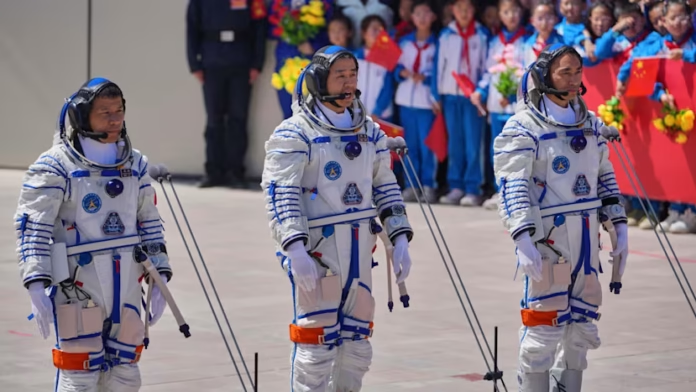Three Chinese astronauts have safely returned to Earth after spending nine extra days aboard China’s Tiangong space station due to damage caused by space debris.
The crew Chen Dong, Chen Zhongrui and Wang Jie landed in a remote region of the Gobi Desert on Friday morning, approximately five and a half hours after undocking from the station in the Shenzhou-21 return capsule.
They had originally travelled to orbit in Shenzhou-20, but switched vehicles after cracks were discovered in one of its windows.
According to the China Manned Space Agency, the hairline fractures were most likely caused by tiny, fast-moving fragments of orbital debris.
Millions of such particles, often the remnants of old satellites or rocket stages, circle the Earth at hypersonic speeds and pose an increasing threat to spacecraft and astronauts.
The three astronauts had completed a six-month rotation and were scheduled to return on November 5, just days after their replacements arrived.
However, the discovery of the cracks forced engineers to postpone their departure, leaving them temporarily stranded.
The agency said earlier in the week that the crew remained in good health and continued working normally alongside the new team.
China has made rapid progress in its space ambitions since launching its first crewed mission in 2003.
The country built the Tiangong space station after being excluded from the International Space Station due to U.S. national security concerns, and it has since conducted lunar and Mars exploration missions. Beijing aims to land astronauts on the moon by 2030.
The most recent mission also carried four laboratory mice, part of an experiment to study how microgravity and prolonged confinement affect small mammals research that could inform future long-duration deep-space travel.
The astronauts were welcomed back after completing yet another milestone in China’s growing presence in space, while the incident underscores the rising global concern over space debris and its potential danger to human spaceflight.



